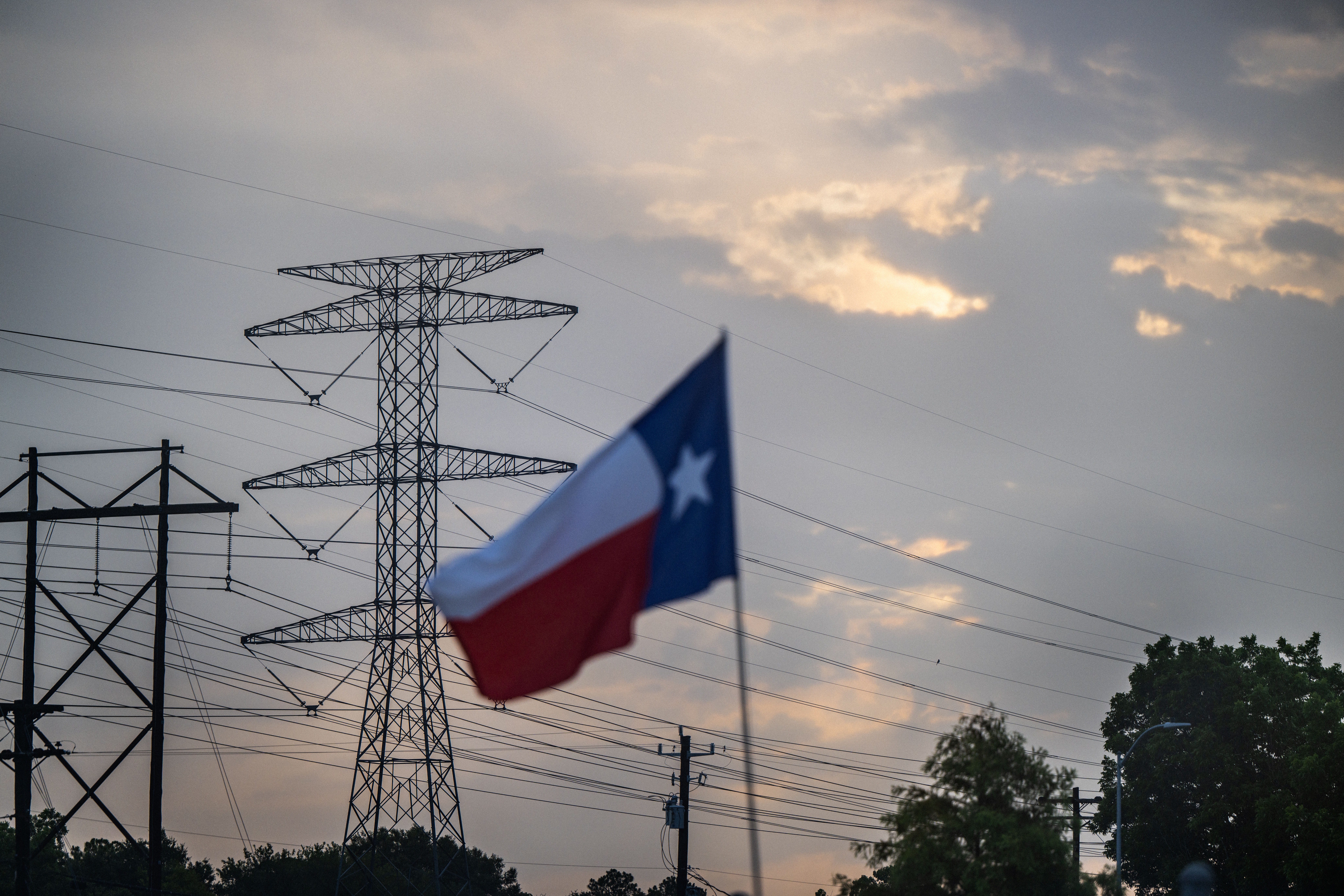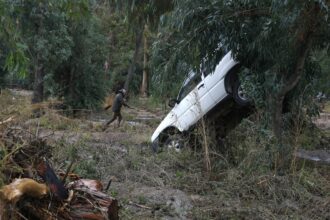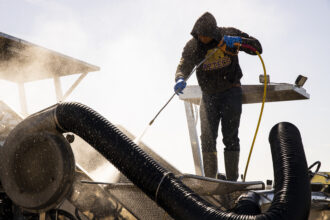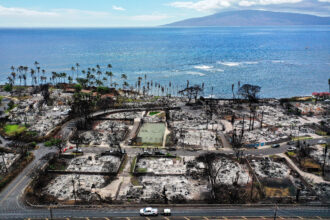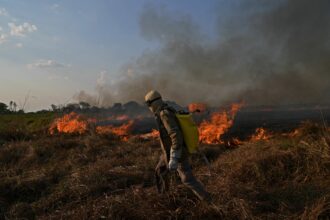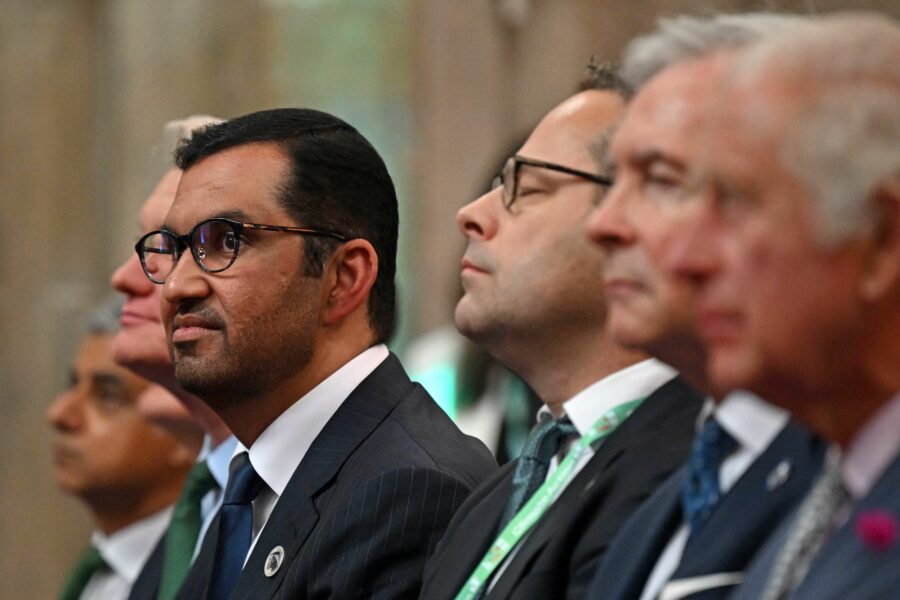New York will become the latest state to require flood risk disclosures in home sales under a new law signed by Gov. Kathy Hochul on Friday. It’s the latest indicator that even places considered relatively insulated from the climate crisis, like the U.S. Northeast, are increasingly feeling its impacts.
The new law, which comes after a summer marked by record-breaking heat and precipitation around the globe, closes a loophole in state law that has allowed home sellers to pay a $500 fee to avoid disclosing their home’s flood risk, the Associated Press reports. The law also requires sellers to disclose additional information about flooding in their properties, such as whether the property is in a flood hazard area and if any flood insurance claims have been filed.
While the Northeast has been considered relatively safe from the effects of a warming world, New York and other states in the region have seen an increasing share of extreme weather events in recent years. In July, Vermont, New York and other Northeast states saw particularly heavy rain, causing catastrophic flooding that killed at least one person, washed out roads and bridges and damaged thousands of homes and businesses.
Last summer, parts of Rhode Island were overwhelmed by more than 10 inches of rain over a 24-hour period. And in what may be the most tragic storm to hit New York City since Superstorm Sandy, at least 13 people died in 2021 after remnants of Hurricane Ida inundated the city for days. Most of those deaths occurred in basements that were illegally converted into apartment units.
Those examples appear to align with the latest National Climate Assessment report, the federal government’s leading analysis on how global warming is affecting the country. It found that the Northeast region is seeing a greater increase of extreme rainfall compared to the rest of the country. It also found that sea-level rise in the region is three times greater than the global average.
“Make no mistake: This is our new normal,” Gov. Hochul wrote on social media, following the historic floods in July. “Our first responders are being asked to manage more weather events than ever before.”
New York’s new flood disclosure law also highlights the nation’s growing home insurance crisis. More and more Americans are finding it difficult to afford insurance on their homes after major insurers stopped offering new plans in some of the states most affected by climate-driven disasters, including California, Florida and Louisiana. In fact, roughly 39 million U.S. properties—roughly a quarter of all homes in the country—are being underpriced for their climate risks, according to a report released last week by First Street Foundation.
Government-funded home insurance is in trouble, too. The National Flood Insurance Program, which provides flood protection for 5 million people who can’t access private insurance plans, is facing a $20 billion deficit, in large part because of increasingly frequent and intense extreme weather. Federal flood insurance premiums are projected to rise as high as 700 percent in the coming years, and Congress now faces a Sunday deadline to reauthorize the program or risks derailing thousands of real estate transactions.
It’s not just floods. The Northeast has also seen record-breaking heat, more intense flash droughts and even greater impacts from wildfires. In 2020, and then again this summer, wildfire smoke darkened the skies above New York City, even though the wildfires themselves were hundreds to thousands of miles away. Scientists say those trends will only become more common in the coming years as the climate warms.
Over the weekend, the remnants of Tropical Storm Ophelia churned northward along the East Coast, bringing heavy rain from North Carolina to New Jersey and prompting coastal flood alerts for nearly nine million people. In New York City, officials urged residents living in basement apartments to seek higher ground.
“While the warmer summer days are behind us, New Yorkers should take precautions regarding the forecast for high winds and rain during our first fall weekend,” said Zach Iscol, the city’s emergency management commissioner, in a press release. “We are still in the middle of Atlantic Hurricane season and it is a great time to review your preparedness plan for your home or business, especially if you live in flood-prone areas.”
More Top Climate News
Young Climate Activists Challenging 32 Governments Will Get Their Day in Court: Six young adults and children from Portugal, who accuse 32 European governments of violating their human rights for what they say is a failure to adequately address climate change, are set to see their day in court Wednesday, Barry Hatton and Helene Alves report for the Associated Press. It’s the first climate change case filed with the European Court of Human Rights, which can exact hefty fines on its member nations, with the potential to compel nations to significantly slash emissions and build a clean energy economy.
US Wildland Fighters Are Hitting a Pay Cliff at the Worst Time: Tensions over wages for federal wildland firefighters are rising, and arguably at the worst time, as the nation deals with some of the worst fire seasons on record, Kyle Stock reports for Bloomberg. On Sept. 30, federal provisions that were implemented to help attract and retain firefighters by guaranteeing certain wage increases, a base pay of $15 an hour and other benefits, are set to expire. If Congress declines to extend pay increases, experts warn of a major exodus of frontline workers ahead of next spring’s fire season.
After Summer’s Extreme Weather, More Americans Now Blame Climate Change: A new poll found that about three-quarters of Americans said they’ve recently experienced extreme weather and believe climate change is partly to blame, Tammy Webber and Linley Sanders report for the Associated Press. The polling, which comes after a summer packed with disasters, also found that roughly 9 out of 10 Americans, or 87 percent, say they’ve experienced at least one extreme weather event in the past five years—up from 79 percent in April.
Today’s Indicator
$4.65 million
That’s how much the Department of Transportation will spend to repair roads damaged by storms and flooding last month in Tennessee, with most of the repairs taking place in the Cherokee National Forest, the agency announced this week.












